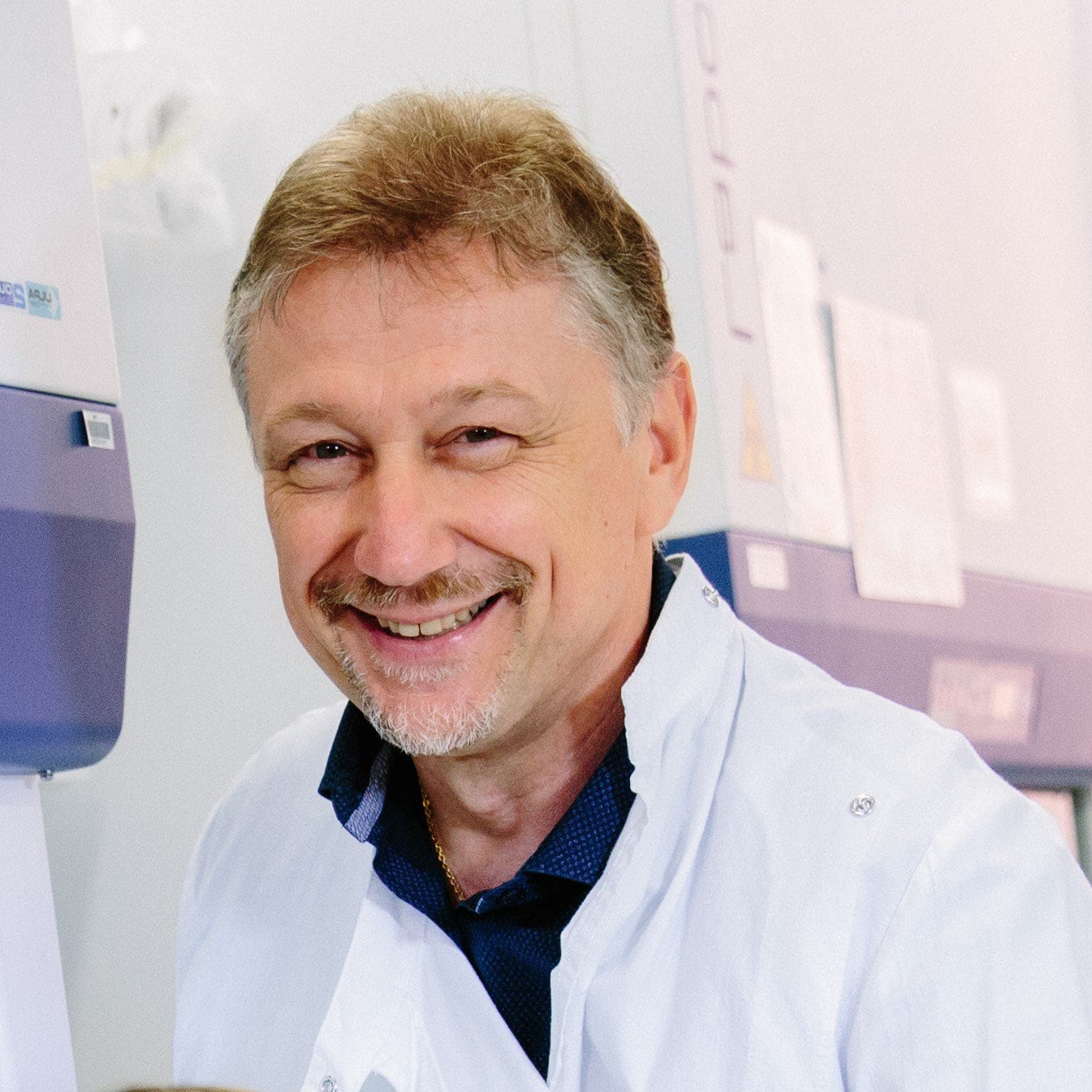
New cancer vaccines for patients with breast cancers with faulty BRCA1 or BRCA2 genes
Published: 05/11/23 8:33 AM

Riccardo Dolcetti
Project Description: Around 20% of all breast cancers carry genetic faults in DNA repair genes (eg BRCA1 or BRCA2 and others) that increase an individual’s risk of developing breast cancer. These tumours have limited therapeutic options, frequently develop resistance and have disproportionately high mortality compared to other breast cancer subtypes. Among different types of immunotherapies, therapeutic cancer vaccines are an emerging and promising approach that requires the identification of specific proteins on the surface of breast cancer cells (antigens) that can mark the tumour for destruction by immune cells. In this study Prof Riccardo Dolcetti (Peter McCallum Cancer Centre) will identify and validate breast cancer specific antigens on the surface of BRCA1 and BRCA2 tumours that can be used to make personalised cancer vaccines. The investigators will then test the safety and effectiveness of these cancer vaccines, in preclinical models, for their ability to promote the expansion of immune cells that can recognise and destroy breast cancer cells with genetic defects in BRCA1 and BRCA2.
Why the Work is Needed: This study will address the unmet medical need for the treatment of tumours with faulty DNA repair, which also includes a subset of triple negative breast cancers (TNBCs), which remains one of the most challenging medical conditions due limited targeted treatment options.
Expected Outcomes: The successful outcomes of this research will identify and validate new tumour markers (antigens) of breast cancers with faulty BRCA1 and BRCA2 genes that can help immune cells recognise and destroy them. These antigens will be used to generate personalised cancer vaccines for these aggressive forms of breast cancer.
Project Details
Breast cancer is the most common cancer diagnosed in Australian women, with over 20,000 new cases reported in 2022. Around 20% of all breast cancers carry genetic faults in DNA repair genes (eg BRCA1 or BRCA2 and others) that increase an individual’s risk of developing breast cancer. These tumours have limited therapeutic options, frequently develop resistance and have disproportionately high mortality compared to other breast cancer subtypes. Immunotherapy is a treatment that boost’s the body’s own immune system to fight cancer, an approach that has shown limited success in treating breast cancer. Among different types of immunotherapies, therapeutic cancer vaccines are an emerging and promising approach that requires the identification of specific proteins on the surface of breast cancer cells (antigens) that can mark the tumour for destruction by immune cells. However, identifying suitable targets for vaccination has been challenging.
With previous support from NBCF, Prof Riccardo Dolcetti and the team developed an innovative and clinically applicable pipeline to identify highly immunogenic tumour antigens. The team also validated an effective nanoparticle-based cancer vaccine platform that incorporates these newly discovery tumour antigens to assist the immune system to mount a strong anti-tumour response.
In this study, Prof Riccardo Dolcetti from the Peter McCallum Cancer Centre will identify and validate breast cancer specific antigens on the surface of BRCA1 and BRCA2 tumours that can be used to make personalised cancer vaccines. The investigators will then test the safety and effectiveness of these cancer vaccines, in preclinical models, for their ability to promote the expansion of immune cells that can recognise and destroy breast cancer cells with genetic defects in BRCA1 and BRCA2. Findings from this study will provide important pre-clinical information to support early-phase human clinical trials.